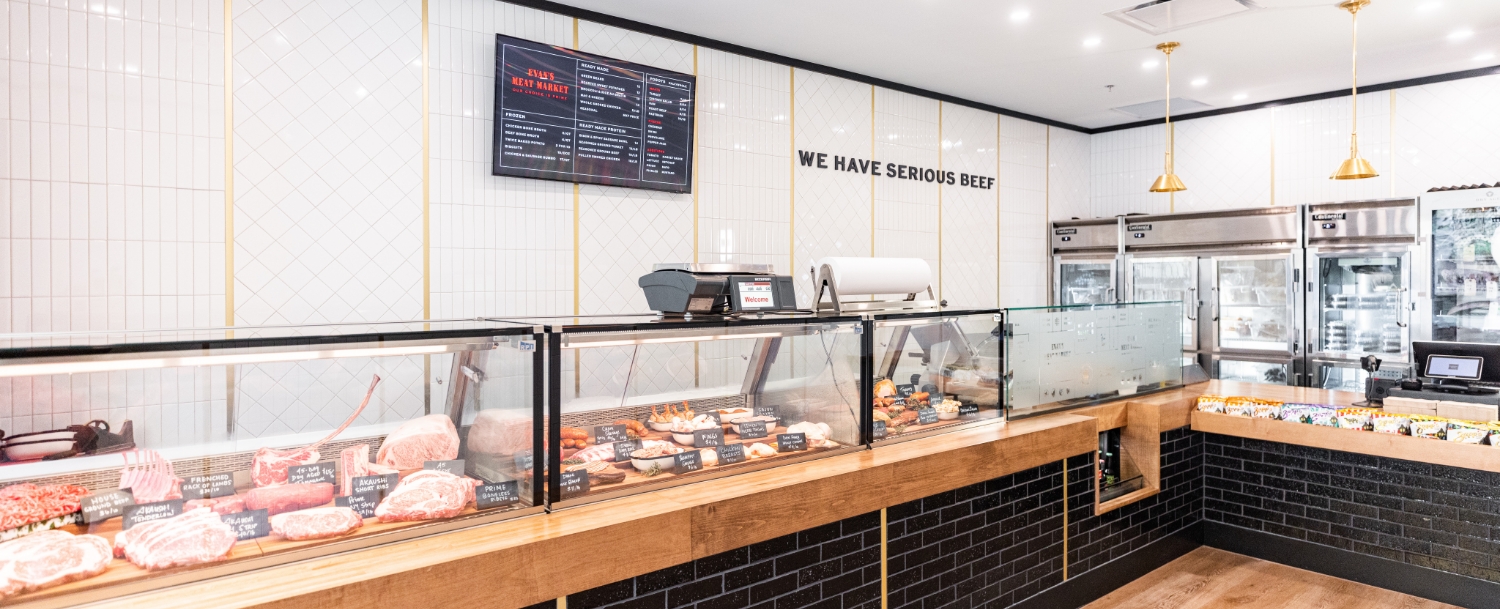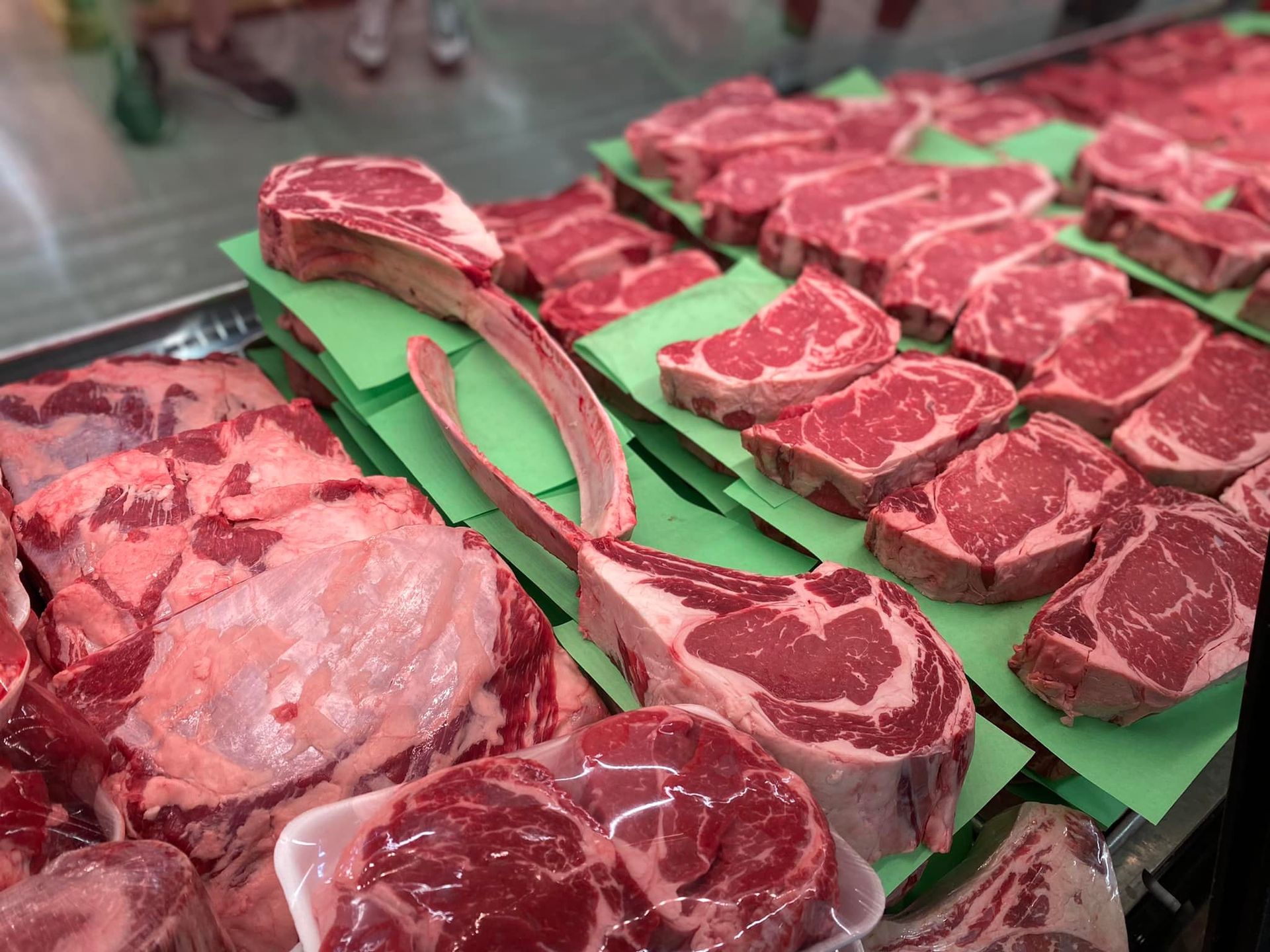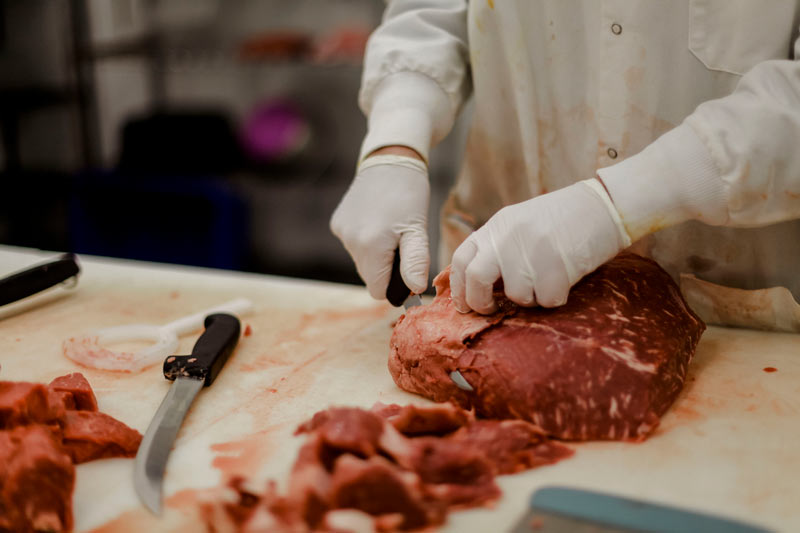Experience the Flavor and Quality at Bagley Meat Market Edwardsville IL
Experience the Flavor and Quality at Bagley Meat Market Edwardsville IL
Blog Article
Why Buying at a Regional Meat Market Guarantees Fresh, High-Quality Cuts
Buying at a local meat market supplies distinct advantages that frequently go unnoticed by customers accustomed to bigger retail chains. These markets supply straight accessibility to fresh, high-grade cuts, a result of minimized transport time from ranch to counter. This not only enhances taste however additionally supports regional farmers, fostering community relationships and lasting practices. Additionally, strenuous top quality control determines make certain that each purchase fulfills high criteria of safety and security and freshness (bagley meat market edwardsville il). The ramifications of selecting regional prolong beyond prompt benefits, prompting a more detailed examination of what this option genuinely means for both customers and the neighborhood economic situation.
Benefits of Regional Sourcing
In the realm of food purchase, the advantages of neighborhood sourcing stand apart prominently. By purchasing meat from neighborhood markets, consumers obtain straight access to items that are often fresher and a lot more flavorful than those discovered in larger, industrial supermarkets. Neighborhood sourcing lowers the time and range food takes a trip from farm to table, which not just boosts taste yet additionally protects nutritional value.

Furthermore, neighborhood sourcing typically supplies openness concerning the beginnings of the meat. Customers can ask about the farming methods used, pet well-being standards, and whether the meat is grass-fed or natural. This info equips customers to make informed choices lined up with their worths.
High Quality Control Criteria
Neighborhood meat markets usually follow strenuous quality assurance requirements that ensure the products offered fulfill high safety and freshness standards. These requirements usually include various phases of the meat production process, from sourcing to dealing with and storage.
First, regional markets usually develop rigorous provider standards, making sure that only trustworthy farms and producers are used - bagley meat market edwardsville il. This lowers the probability of contamination and promotes greater pet welfare requirements. Furthermore, numerous neighborhood meat markets apply routine examinations to verify that the meat is refined under hygienic problems, better reducing wellness threats
Temperature level control is one more crucial aspect of quality control. Regional meat markets often keep an eye on refrigeration systems to maintain ideal storage temperature levels, guaranteeing that meat continues to be fresh and safe for intake. Moreover, the implementation of traceability systems enables markets to track the origin of their products, giving transparency and liability.
Last but not least, team at local meat markets are usually educated to recognize indicators of spoilage and understand correct handling strategies. This commitment to quality assurance not only boosts the overall requirement of the meat yet additionally cultivates customer trust fund, making regional meat markets a reliable resource for high-quality cuts.
Sustaining Regional Farmers
Supporting regional farmers is necessary for promoting a lasting food system and improving community strength. When consumers pick to go shopping at regional meat markets, they straight add to the source of incomes of farmers in their area. This not just supports the regional economic situation however likewise strengthens the farming sector, making certain that it stays lively and practical.


Additionally, supporting neighborhood farmers fosters a feeling of neighborhood and connection in between producers and customers. It encourages openness in food sourcing and infuses count on, as clients can create partnerships with the people that raise their food. This straight connection ultimately brings about a more engaged and informed public, which is essential for supporting for sustainable farming methods in the future.
Sustainable Practices
Sustainable techniques in meat markets play an essential function in advertising ecological stewardship and ensuring pet well-being. Regional meat markets commonly prioritize sourcing their products from ranches that execute sustainable and moral farming approaches. These methods include rotational grazing, which helps preserve dirt health and wellness and lowers carbon exhausts, along with reducing making use of anti-biotics and hormonal agents in livestock.
Furthermore, local meat markets typically stress openness in their supply chains. Customers are visit offered with details relating to the beginning of their meat, allowing them to make enlightened selections that align with their worths. By sustaining regional farmers who practice lasting approaches, customers add to the preservation of biodiversity and the decrease of transport emissions connected with long-distance meat distribution.
In addition, numerous neighborhood meat markets take part in waste decrease strategies, such as utilizing every part of the pet and promoting off-cuts that could or else go unsold. By fostering a more sustainable strategy to meat intake, these markets not only supply high-quality items but likewise contribute positively to the environment and animal welfare. In essence, shopping at a local meat market straightens customers with a more comprehensive activity towards moral and liable food sourcing.
Customized Client Service
Shopping at a meat market usually incorporates more than just the items provided; it is additionally concerning the experience and the relationships built between clients and team. Customized client service is a hallmark of local meat markets, establishing them apart from larger grocery chains. Experienced staff put in the time to comprehend specific customer preferences, making sure that each check out is tailored to specific demands.
Customers take advantage of experienced suggestions on cuts, food preparation techniques, and preparation ideas, cultivating a sense of depend on and loyalty. This customized communication permits consumers to ask questions and look for recommendations, leading to notified buying decisions. Employee commonly bear in mind routine clients and their preferences, creating an inviting ambience that grows neighborhood ties.
Furthermore, tailored service read extends to special demands, such as custom cuts or specific preparation approaches, which bigger retailers might reference not accommodate. This level of attention reinforces the commitment of local meat markets to top quality and consumer contentment.
In significance, individualized customer support not only boosts the shopping experience however additionally makes sure that customers leave with the very best products suited to their cooking demands, making every visit a satisfying one.
Final Thought
Supporting local farmers fosters neighborhood relationships and enhances the regional economy, while lasting practices add to environmental stewardship. In addition, personalized client service enhances the shopping experience, making local meat markets a favored selection for consumers seeking both quality and honest considerations in their food sourcing.
The ramifications of selecting neighborhood prolong past instant benefits, motivating a closer examination of what this option truly implies for both customers and the neighborhood economy.
Supporting regional meat markets likewise contributes to the regional economic situation. Local meat markets often monitor refrigeration systems to maintain ideal storage temperature levels, making sure that meat stays fresh and risk-free for consumption.Neighborhood farmers are commonly much more attuned to the specific demands of their neighborhoods, elevating and growing plants animals that align with neighborhood tastes and preferences. Supporting local farmers fosters neighborhood relationships and reinforces the neighborhood economy, while sustainable practices add to environmental stewardship.
Report this page